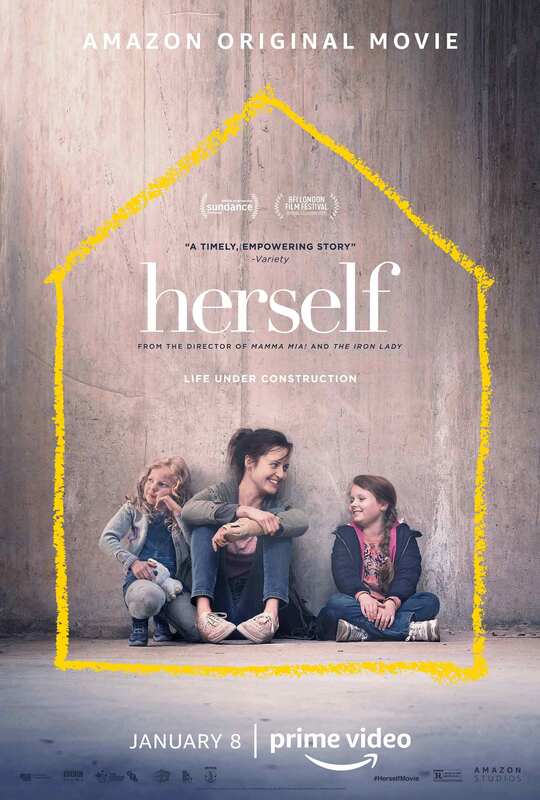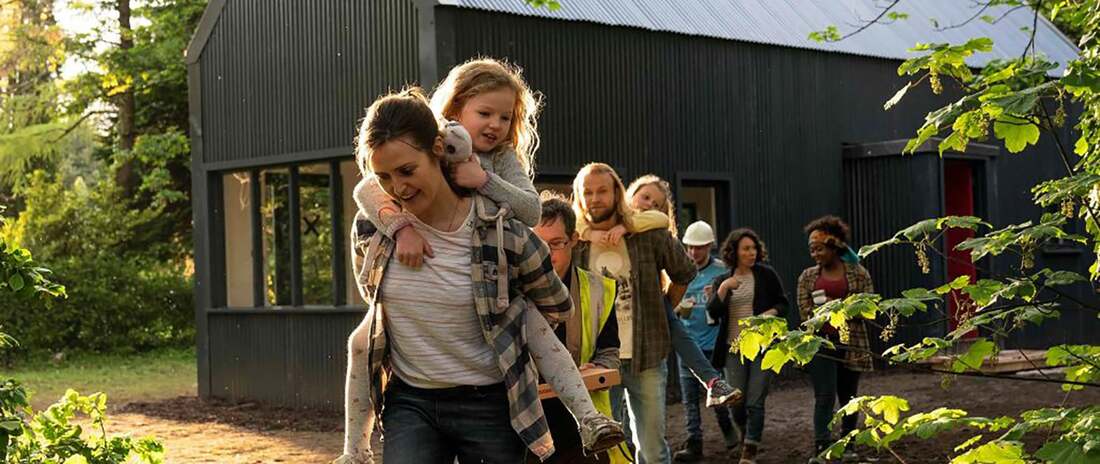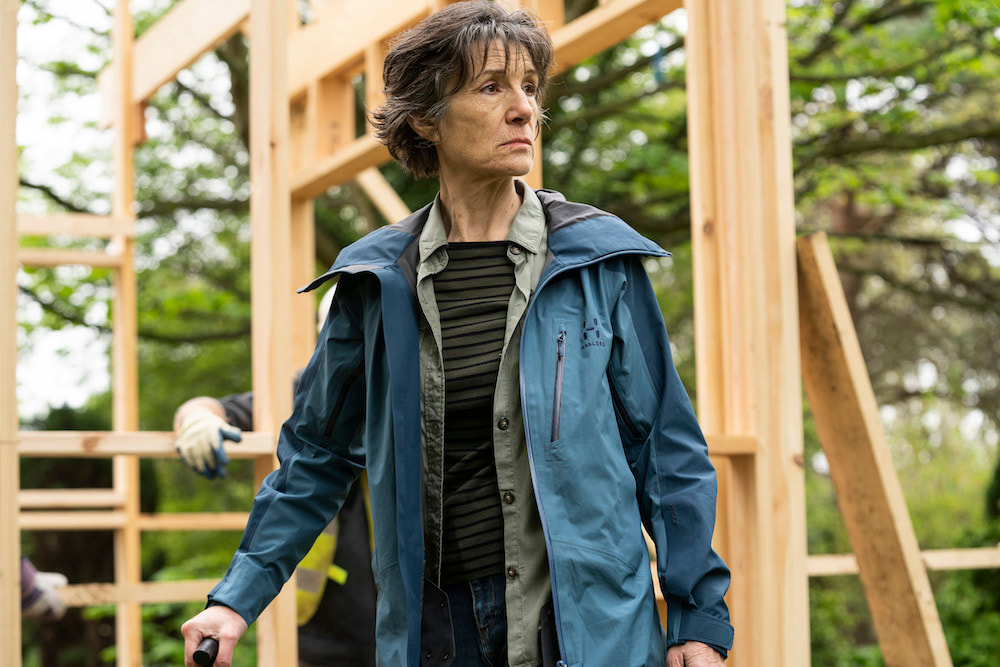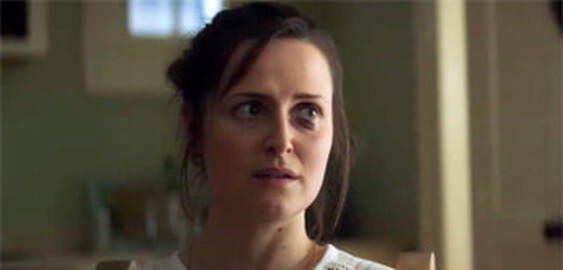When we rejoin her, Sandra is living in temporary accommodation in a hotel where she’s not even allowed to use the front door. She’s working two jobs and having to share custody of her children with the man who abused her for years. In a Ken Loach-style unjust system conundrum, she faces years on the waiting list for a home, costing the taxpayer thousands of euros, while spending money she desperately needs on petrol travelling to and from the hotel every day. Inspired to beat the system by building her own home she slowly gathers a group of volunteers willing to give their own time and physical efforts to help. But with her ex threatening the custody of her children, and a precarious housing system working against her, she has a mountain to climb to freedom. “Herself” has strong similarities with Josephine Mackerras’s 2019 drama “Alice”, in which a woman struggles to keep her home and her son after discovering her husband’s infidelity and financial abuse. Both films show a system stacked against women who try to build a life of their own after leaving abusive relationships, and the injustice of abusive men continuing to hold so much power against them. Here the abuse Sandra received is never far from her mind, and her physical injuries are slow to heal, reminding us of the gravity of the situation in an otherwise uplifting film. The salt and the sweet are perfectly balanced so that we are deeply emotionally invested in the happiness and freedom of the characters. Hard work and determination are what will release Sandra from homelessness and misery. But she can’t do it alone and she manages to rally a small group of supporters willing to give up their weekends to help build her home. Seeing women supporting women on screen is so deeply powerful. Too often they’re shown in conflict, using underhanded means to bring each other down. So to see such selfless communal support, especially between women, gave me chills. Small moments of support and encouragement are peppered throughout the film, showing us that grand gestures aren’t the only things that make a difference. A pep talk, an encouraging smile, or just the act of showing up all build a positive environment where everyone can thrive. There’s something wonderfully feminist about breaking down toxic competition and building each other up. There’s room for everyone at the table if we all just scoot over a bit. The sheer range of objects and locations representing the home makes us consider what a home really means. It could be a plastic wendy house, a cardboard box, a hotel room, a building site, and more. Homes are places of hard work, destruction, safety and violence. If it has four walls and a roof, and is a place of safety, that’s all you really need but for so many people even that is out of reach. Hundreds of people literally queue around the block just for a chance of a home, only to have that chance offhandedly pulled away. “Herself” is fairly light in tone but carries so much devastating emotional weight that it can be difficult to watch. Sandra’s goal may be unreal, how many people could really build their own home in the garden of a generous employer after all? But, her situation is devastatingly real for many. Violence, lack of safe housing, and abusers continuing to pull the strings of their victim’s lives affect millions of people around the world. This film tells us that we can pull together and support each other, and that with resilience we can help our sisters through. “Herself” is deeply empowering and emotional. I wish I had more than 5 stars to give it. Please watch this film and if you find it even remotely impactful donate to your local domestic abuse charity. Comments are closed.
|
AuthorHi, I'm Caz. I live in Edinburgh and I watch a lot of films. My reviews focus mainly on women in film - female directors or how women are represented on screen. Archives
December 2021
Categories
All
|






 RSS Feed
RSS Feed
